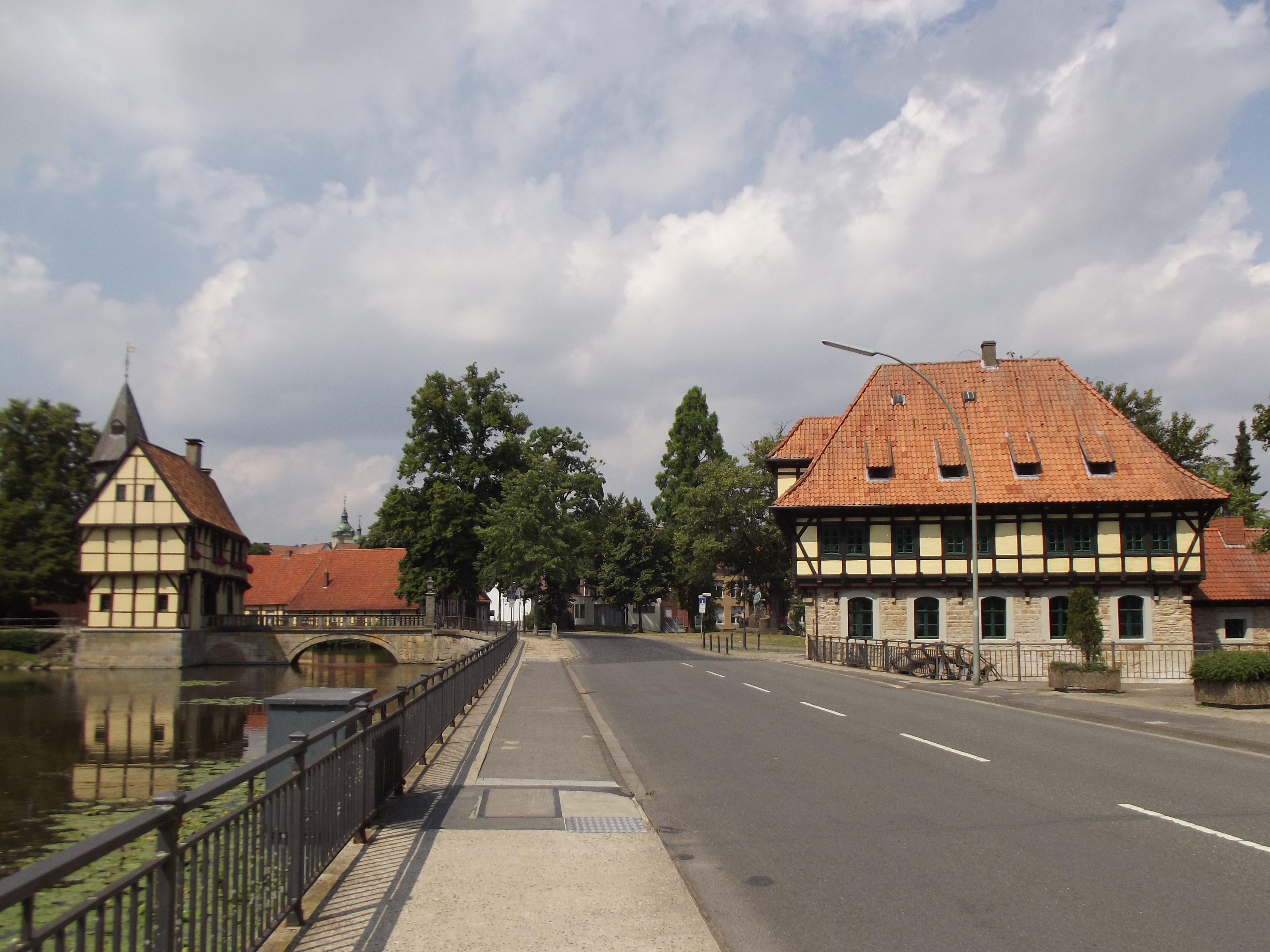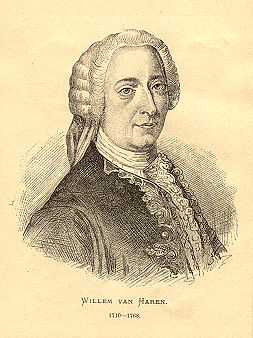|
Petrus Wesseling
Petrus Wesseling (7 January 1692 – 9 November 1764) was a German philologist and jurist working in the Dutch Republic. He became famous as a philologist. Early life Petrus was born to Gerardus Wesseling and Anna Reiners or Creter on 7 January 1692 Old Style. When he was 10 he lost his father. He then went to his uncle Wessel Reiners, a merchant in Emden. Here Petrus visited the Latin school. Later he went to the Gymnasium Arnoldinum in Steinfurt. Here Petrus was educated in classical languages and theology. His main teachers were August Houck (1677/79–1716), Werner Justin Pagenstecher (1671–1742) and Arnold Visch (? –1717). In 1712 Petrus ended his studies in Steinfurt with a disputation ''theologica de petra in Matthaei evang. XVI:18'' In October 1712 Petrus registered at Leiden University. Here he listened to Jakob Gronovius, Jacobus Perizonius, Johannes a Marck (1656–1731), Salomon van Til (1643–1713), Franciscus Fabricius (1663–1738), and Johannes Wesse ... [...More Info...] [...Related Items...] OR: [Wikipedia] [Google] [Baidu] |
Burgsteinfurt
Steinfurt (; Westphalian: ''Stemmert'') is a city in North Rhine-Westphalia, Germany. It is the capital of the district of Steinfurt. From roughly 1100-1806, it was the capital of the County of Steinfurt. Geography Steinfurt is situated north-west of Münster, North Rhine-Westphalia. Its name came into being in 1975 when the two hitherto independent towns Borghorst and Burgsteinfurt amalgamated. Borghorst became a prosperous city due to its flourishing textile industry, whereas Burgsteinfurt has always rather been coined by culture and administration. Tourists of the 19th century passing Burgsteinfurt praised the city as the "Paradise of Westphalia" and "Royal Diamond" (''Königsdiamant'') because of its 75 monumental buildings and moated castle. Neighbouring municipalities Steinfurt borders Ochtrup, Wettringen, Neuenkirchen, Emsdetten, Nordwalde, Altenberge, Laer, Horstmar and Metelen. City division Steinfurt consists of ''Borghorst'' and ''Burgsteinfurt'', each with thre ... [...More Info...] [...Related Items...] OR: [Wikipedia] [Google] [Baidu] |
Jakob Gronovius
Jacobus Gronovius a.k.a. Jacob Gronow (10 October 1645 – 21 October 1716) was a Dutch classical scholar. He was born in Deventer, the son of the German classical scholar Johann Friedrich Gronovius and Aleyda ten Nuyl, and father of the botanist Jan Frederik Gronovius. His family moved to Leiden in 1658 and he married Anna van Vredenburch from Rotterdam on 5 May 1680. Gronovius is chiefly known as the editor of the ''Thesaurus antiquitatum Graecarum'' (1697–1702, in 13 volumes). He died, aged 71, in Leiden. References {{DEFAULTSORT:Gronovius, Jakob 1645 births 1716 deaths Dutch classical scholars People from Deventer Classical scholars of Leiden University ... [...More Info...] [...Related Items...] OR: [Wikipedia] [Google] [Baidu] |
Willem Van Haren
Jonkheer Willem van Haren (21 February 1710 – 4 July 1768) was a Dutch nobleman and poet. Van Haren was born in Leeuwarden. His best-known work was an epic poem, ''Friso'', created in 1741. His brother, jhr. Onno Zwier van Haren, was also a poet and wrote patriotic verses. Willem van Haren died in Sint-Oedenrode Sint-Oedenrode () is a town in the province of North Brabant. Sint-Oedenrode is a moderately urbanized town in the Meierij of 's-Hertogenbosch. Sint-Oedenrode had an unknown population as of and has an area of . On 1 January 2017 Sint-Oedenrode .... References 1710 births 1768 deaths 18th-century Dutch writers Dutch male poets Dutch critics 18th-century Dutch diplomats Dutch nobility People from Leeuwarden 18th-century Dutch poets 18th-century male writers {{netherlands-poet-stub ... [...More Info...] [...Related Items...] OR: [Wikipedia] [Google] [Baidu] |
William IV, Prince Of Orange
William IV (Willem Karel Hendrik Friso; 1 September 1711 – 22 October 1751) was Prince of Orange from birth and the first hereditary stadtholder of all the United Provinces of the Netherlands from 1747 until his death in 1751. During his whole life he was furthermore ruler of the Principality of Orange-Nassau within the Holy Roman Empire. Early life William was born in Leeuwarden, Netherlands, the son of John William Friso, Prince of Orange, head of the Frisian branch of the House of Orange-Nassau, and of his wife Landgravine Marie Louise of Hesse-Kassel (or Hesse-Cassel). He was born six weeks after the death of his father. William succeeded his father as Stadtholder of Friesland and also, under the regency of his mother until 1731, as Stadtholder of Groningen. In 1722 he was elected Stadtholder of Guelders. The four other provinces of the Dutch Republic:, Holland, Zeeland, Utrecht and Overijssel had in 1702 decided not to appoint a stadtholder after the death of stadtholder ... [...More Info...] [...Related Items...] OR: [Wikipedia] [Google] [Baidu] |
Lecturer
Lecturer is an List of academic ranks, academic rank within many universities, though the meaning of the term varies somewhat from country to country. It generally denotes an academic expert who is hired to teach on a full- or part-time basis. They may also conduct research. Comparison The table presents a broad overview of the traditional main systems, but there are universities which use a combination of those systems or other titles. Note that some universities in Commonwealth countries have adopted the American system in place of the Commonwealth system. Uses around the world Australia In Australia, the term lecturer may be used informally to refer to anyone who conducts lectures at a university or elsewhere, but formally refers to a specific academic rank. The academic ranks in Australia are similar to those in the UK, with the rank of associate professor roughly equivalent to reader in UK universities. The academic levels in Australia are (in ascending academic level) ... [...More Info...] [...Related Items...] OR: [Wikipedia] [Google] [Baidu] |
Praelector
A praelector is a traditional role at the University of Cambridge and the University of Oxford. The role differs somewhat between the two ancient universities. University of Cambridge At Cambridge, a praelector is the fellow of a college who formally presents students during their matriculation and the graduation ceremony at Cambridge, especially during the Congregation of the Regent House The Regent House is the governing body of the University of Cambridge. It consists of most academic and academic-related staff of the University's colleges and departments. It currently has more than 3,000 members. Meetings of the Regent House ... when degrees are conferred. The praelector is also vicariously responsible for a student's actions and can be punished for those actions. University of Oxford At Oxford, a praelector may be a fellow of the college, but may also be a college tutor who is responsible for running an honours school in the absence of a fellow. A praelector may also hol ... [...More Info...] [...Related Items...] OR: [Wikipedia] [Google] [Baidu] |
Dutch Reformed Church
The Dutch Reformed Church (, abbreviated NHK) was the largest Christian denomination in the Netherlands from the onset of the Protestant Reformation in the 16th century until 1930. It was the original denomination of the Dutch Royal Family and the foremost Protestant denomination until 2004. It was the larger of the two major Reformed denominations, after the Reformed Churches in the Netherlands (''Gereformeerde kerk'') was founded in 1892. It spread to the United States, South Africa, Indonesia, Sri Lanka, Brazil, and various other world regions through Dutch colonization. Allegiance to the Dutch Reformed Church was a common feature among Dutch immigrant communities around the world and became a crucial part of Afrikaner nationalism in South Africa. The Dutch Reformed Church was founded in 1571 during the Protestant Reformation in the Calvinist tradition, being shaped theologically by John Calvin, but also other major Reformed theologians. The church was influenced by vari ... [...More Info...] [...Related Items...] OR: [Wikipedia] [Google] [Baidu] |
Albert Schultens
Albert Schultens (; 168626 January 1750) was a Dutch philologist. Biography He was born at Groningen, where he studied for the church. He went on to the University of Leiden, applying himself specially to Hebrew and the cognate tongues. His thesis ''Dissertatio theologico-philologica de utilitate linguae Arabicae in interpretenda sacra lingua'' ("The Use of Arabic in the Interpretation of Scripture") appeared in 1706.Hebrew Bible / Old Testament: The History of Its Interpretation 2: edited by Magne Saebo, Magne Sæbø After a visit to in |
Campegius Vitringa
Campegius Vitringa Sr., or Kempe VitringaEijnatten (2003), p.84 (May 16, 1659 at Leeuwarden – March 31, 1722 at Franeker) was a Dutch Protestant theologian and Hebraist. His youngest of four children was Campeius Vitringa (1693-1723). Vitringa, a follower of Johannes Cocceius, was a supporter of prophetic theology. He was educated at the universities of Franeker and Leiden, and became professor of Oriental languages at the former in 1681. When locating prophetic outcomes, he would associate events to the near rather than the far-off future, placing a distinct focus on the period of the Maccabees (2nd Century BC). Like Joseph Mede (1586-1638), Vitringa believed wholeheartedly that the Millennium was yet to come, but did not expect any immediate changes. He relegated the end of the time to a remote future and strongly emphasized the concept of New Jerusalem. His most important student is considered Herman Venema (1697-1787), who was a theology professor at Franeker. Vitringa ... [...More Info...] [...Related Items...] OR: [Wikipedia] [Google] [Baidu] |
University Of Franeker
The University of Franeker (1585–1811) was a university in Franeker, Friesland, the Netherlands. It was the second oldest university of the Netherlands, founded shortly after Leiden University. History Also known as ''Academia Franekerensis'' or the University of Friesland, it consisted of departments of Theology, Law, Medicine, Philosophy, Mathematics and Physics. Among its well-known students was Peter Stuyvesant, last director-general of the Dutch colony of New Netherland. Initially the university had an excellent reputation, attracting students from far and wide, but from 1700 its fortune changed. The university was disbanded by Napoleon in 1811, along with the Universities of Harderwijk and Utrecht. After the end of the French régime, the university was not restored. Instead, an ''Athenaeum illustre'' was founded, which did not have the right to issue doctoral degrees. In 1843, the ''Athenaeum'' itself was disbanded because of a lack of students. Today, Franeker has no in ... [...More Info...] [...Related Items...] OR: [Wikipedia] [Google] [Baidu] |
Johannes Wesselius
Johannes is a Medieval Latin form of the personal name that usually appears as " John" in English language contexts. It is a variant of the Greek and Classical Latin variants (Ιωάννης, '' Ioannes''), itself derived from the Hebrew name '' Yehochanan'', meaning " Yahweh is gracious". The name became popular in Northern Europe, especially in Germany because of Christianity. Common German variants for Johannes are '' Johann'', ''Hannes'', ''Hans'' (diminutized to ''Hänschen'' or ''Hänsel'', as known from "'' Hansel and Gretel''", a fairy tale by the Grimm brothers), '' Jens'' (from Danish) and ''Jan'' (from Dutch, and found in many countries). In the Netherlands, Johannes was without interruption the most common masculine birth name until 1989. The English equivalent for Johannes is John. In other languages *Joan, Jan, Gjon, Gjin and Gjovalin in Albanian *'' Yoe'' or '' Yohe'', uncommon American form''Dictionary of American Family Names'', Oxford University Press, 20 ... [...More Info...] [...Related Items...] OR: [Wikipedia] [Google] [Baidu] |
Franciscus Fabricius
Franciscus is a Latin given name, originally an epithet meaning "the Frank, the Frenchman". It was applied to Saint Francis of Assisi (1181/82–1226). Francis had been baptized Giovanni (John); his father was Italian and his mother Provençale ( at the time not considered French); his father was on business in France when he was born, and when he returned to Assisi, he began to call his son by the nickname ''Francesco'', in the opinion of G. K. Chesterton possibly because out of a general enthusiasm for all things French, or because of his commercial success in France.Chesterton, Gilbert Keith (1924). "St. Francis of Assisi" (14 ed.). Garden City, New York: Image Books. p. 158. After the canonization of Saint Francis of Assisi in 1228, the custom of naming children after saints led to the popularization of ''Franciscus'' as a given name. In the vernaculars of western Europe, the name diversified into the forms Francesco (Italian), Francisco (Spanish and Portuguese), France ... [...More Info...] [...Related Items...] OR: [Wikipedia] [Google] [Baidu] |







